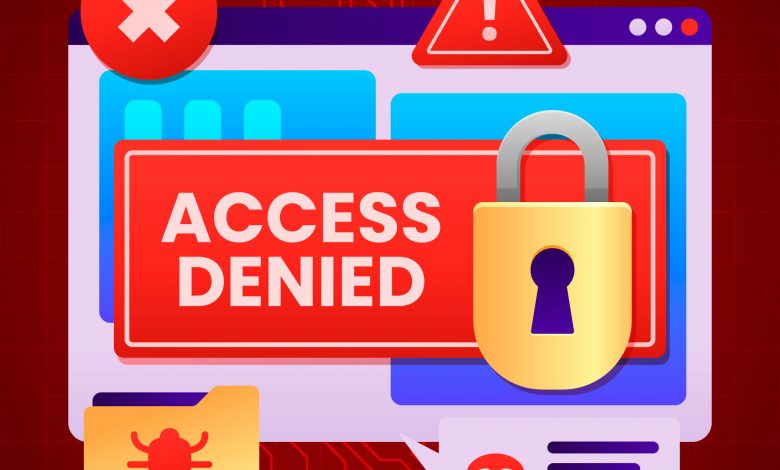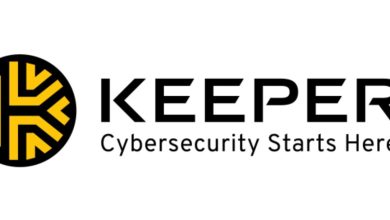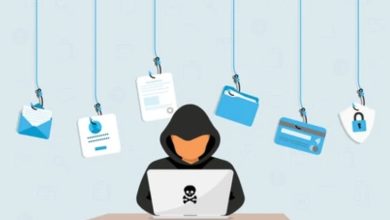What Will Your GoTo Ransomware Protection Be?

No one likes to be held hostage. Whether it is in a high-stakes movie plot or the all-too-real world of cybercrime, the idea of being at the mercy of an unseen adversary is enough to send shivers down anyone’s spine. In recent years, this scenario has become an all-too-common reality for Small and Medium-Sized Enterprises (SMEs) as they find themselves increasingly targeted by ransomware attacks. These malicious acts of digital extortion can cripple a business, causing not only financial losses but also reputational damage that can be difficult to repair.
Based on a recent report from the Cyber Security Agency of Singapore (CSA), although there was a slight reduction in ransomware incidents in 2022 compared to the previous years, SMEs, particularly those in the manufacturing and retail sectors, were predominantly singled out for these attacks.
 In a recent interview with Lindsay Brown, Vice President and General Manager of Asia Pacific and Japan at GoTo, he highlighted the pressing question mentioned earlier and believes that this has something to do with the limited resources allocated to combat cyber threats.
In a recent interview with Lindsay Brown, Vice President and General Manager of Asia Pacific and Japan at GoTo, he highlighted the pressing question mentioned earlier and believes that this has something to do with the limited resources allocated to combat cyber threats.
Brown stresses the need for agility amongst retail SMEs, stating that rapid responses to customer demands are essential. Any hiccups in these areas can lead to a quick loss of customers. “You get a bad experience online, as you know, they typically tend to go elsewhere really quickly,” Brown said. He explained that cybercriminals exploit this type of vulnerability, knowing that retail businesses are often more inclined to pay a ransom to minimise disruption and loss of customers.
For manufacturing SMEs, Brown highlighted that they have their hands deeply embedded in complex supply chains. They engage with various companies during production, creating multiple points of vulnerability. Cybercriminals view these businesses as attractive targets due to their wide-reaching operations. In the fast-paced world of manufacturing, time is money, and maintaining cash flow and customer satisfaction is crucial.
Cybercriminals exploit these types of vulnerabilities with full knowledge that both the retail and manufacturing SMEs tend to pay ransoms to minimise disruption and loss of customers as well as to regain control and resume normal operations swiftly.
Brown believes that SMEs must invest in robust IT infrastructure and cybersecurity solutions to protect themselves from the growing menace of ransomware. But then again, with limitations in terms of manpower, and also budget what can these SMEs really do?
Being Smart Within Limitations
“They need to be smarter because it is very concerning,” begins Brown. Not only that, but he also emphasised that these SMEs need to change their mindset. Most SMEs, according to Brown, have the belief that cybersecurity is only a concern for larger corporations, not SMEs. Plenty of SMEs, as mentioned earlier, are constrained by limited budgets and manpower, and they often perceive cybersecurity as an issue that may hurt when an attack occurs but will not have a significant impact on their daily operations. In Brown’s words, “It’s unfortunate, but that’s sort of the mentality that goes with it.”
However, the reality is quite different. As businesses, including SMEs, increasingly rely on digital platforms and online interactions, the need for robust cybersecurity measures becomes paramount. In Singapore, where Brown’s expertise is particularly relevant, the challenge is magnified. He noted that 50% of SMEs in Singapore prioritise digital security, a statistic that raises concerns about the readiness of these businesses to protect their operations in the digital age.
To combat the challenges regarding the lack of funding and manpower, Brown underscores the significance of partnering with industry experts and channel partners. These collaborations can offer a range of benefits that may help SMEs bridge the gap in IT capabilities such as:
- Specialised Expertise: Channel partners bring specialised expertise in various verticals, allowing SMEs to receive tailored solutions that precisely meet their unique needs, whether in education, retail, manufacturing, healthcare, or other domains.
- Cost Savings: Outsourcing IT services to partners leverages the economy of scale. Partners can replicate solutions across multiple SME clients, resulting in significant cost savings compared to maintaining an in-house IT department.
- Continuous Monitoring: Partnering with experts ensures around-the-clock monitoring of IT systems, ensuring business continuity and minimising downtime. This is particularly crucial in industries where uninterrupted operation is mission-critical, such as healthcare.
- Scalability: Channel partners offer the flexibility to scale IT services according to the dynamic nature of the market or business. Whether a small business or a larger organisation, partners can adapt to meet changing requirements.
- Staying Current With Security Trends: Partners stay abreast of the latest security trends, a critical factor in maintaining robust cybersecurity. SMEs can benefit from the partner’s commitment to keeping IT systems secure.
Knowing the need to have partnerships with industry experts is one thing, choosing the right partner is another. Having a trustworthy partner who can provide you with the right software can significantly impact your cybersecurity posture and overall business operations.
When people think of ransomware protection, GoTo might not be the first thing that comes to mind. However, Brown was prepared to shed light on the company’s comprehensive approach to keeping their clients secure, especially against advanced ransomware threats.
GoTo has long been synonymous with collaboration tools, IT management, and support solutions. The company’s product portfolio includes well-known offerings like GoTo Meeting, GoTo Webinar, GoTo Resolve, GoTo Assist, and GoTo MyPC. Many of these products boast a heritage spanning more than two decades, with a strong emphasis on security and privacy at their core.
Brown highlights the significance of this legacy, stating, “Security and privacy is something which is at the core of what we do.” GoTo has implemented security measures like zero-trust security from the ground up, ensuring that clients do not need to worry about additional security add-ons when adopting their products.
While ransomware protection is crucial, Brown emphasises that GoTo’s focus extends beyond this specific threat. Instead, the company takes a broader view of a business’s IT organisation’s health. This perspective encompasses various aspects:
- Device Health: Ensuring the health of devices used within the organisation. Regular updates and maintenance can reduce vulnerability to ransomware and other threats.
- Network Health: Monitoring the health of the organisation’s network, especially in a hybrid environment. Proactive monitoring helps identify anomalies and potential security risks.
- User Health: Ensuring the health of both personal and business devices used by employees and consumers. Prompt service and support response times are critical in maintaining user satisfaction.
- Efficient Communications: Enabling efficient customer communications and collaboration through tools like conversational ticketing, which integrates with platforms like Salesforce and Slack.
While GoTo may not be the predominant choice when compared to other ransomware protection companies, its solutions offer a holistic and encompassing approach to covering the security landscape. This approach spans IT service management, customer communications, and collaboration, ensuring that businesses have a comprehensive security strategy in place.
GoTo’s commitment to security and privacy, coupled with its long-standing heritage in the industry, sets the company apart in the realm of IT solutions. By taking a holistic approach to IT health and security, GoTo empowers organisations to navigate the complex cybersecurity landscape with confidence, safeguarding their digital assets, and staying resilient against advanced threats like ransomware.




